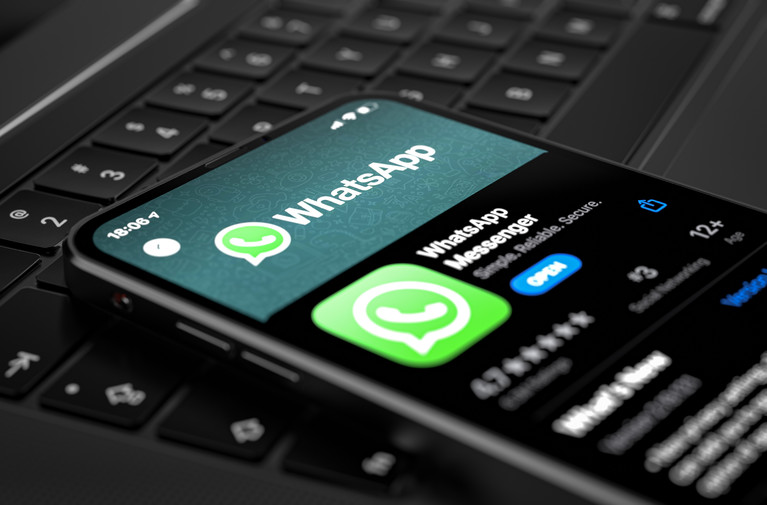Trending Topic: Balancing Client Convenience with Legal Compliance in Modern Communication
New York, NY – August 21, 2025 – WhatsApp, the globally popular messaging app with over 2 billion monthly active users, has become a preferred communication tool for clients seeking quick, informal interactions with their lawyers. Its end-to-end encryption, ease of use, and features like document sharing and voice notes make it a convenient choice for clients, particularly in the wake of increased remote communication post-COVID. However, many lawyers remain wary, citing significant compliance, confidentiality, and ethical risks that clash with the app’s client-friendly appeal, according to recent analyses by legal experts and industry reports.
Why Clients Love WhatsApp
Clients are drawn to WhatsApp’s immediacy and accessibility, which align with modern expectations for fast, personalized communication. A 2025 ClientWindow article highlights its role in streamlining client-lawyer interactions, allowing for real-time updates, document sharing up to 2GB, and group chats to keep multiple parties informed. The platform’s user-friendly interface fosters a sense of connection, with clients appreciating the ability to send quick questions or receive case updates without scheduling formal calls. For instance, a client can share a contract via WhatsApp and get prompt clarification on legal jargon, enhancing satisfaction and engagement.
The app’s rise in professional use surged during the pandemic, as noted in a 2025 Gallabox report, which emphasizes its end-to-end encryption as a safeguard for client confidentiality. Features like two-factor authentication and biometric access further bolster security, making it appealing for clients who value privacy and convenience. Posts on X reflect this sentiment, with users praising WhatsApp’s seamless integration into daily life, though some express concerns about its privacy policies under Meta’s ownership.
Why Lawyers Are Hesitant
Despite client enthusiasm, lawyers face significant hurdles in adopting WhatsApp due to compliance and ethical challenges. A 2021 Jonathon Bray article underscores the risks of “off-channel” communication, noting that WhatsApp messages are often not logged in case management systems, making it difficult to maintain a complete client file. This lack of documentation can lead to supervision issues, as key communications may remain trapped on a lawyer’s personal device, potentially violating the Solicitors Regulation Authority (SRA) Code of Conduct’s requirement for effective client matter oversight.
Security concerns also loom large. While WhatsApp’s encryption protects against third-party interception, risks like lost or stolen devices, lack of app-specific passwords, and potential data sharing with Meta raise red flags. A 2019 Above the Law article highlights ethical concerns, noting that WhatsApp’s access to contact lists could inadvertently disclose client identities, breaching confidentiality obligations. Additionally, unrecorded messages may go unbilled, leading to revenue leakage, with firms potentially losing track of billable hours spent on quick exchanges.
Regulatory compliance is another sticking point. The SRA and similar bodies mandate strict data protection and record-keeping protocols, which WhatsApp’s lack of built-in archiving features complicates. A 2025 ClientWindow report suggests that without integration into systems like Outlook or Mimecast, firms risk non-compliance with data retention requirements. In court, WhatsApp messages can be admissible as evidence if properly authenticated, but verifying sender details and ensuring legal acquisition can be challenging, as noted in a 2022 Altlaw article.
Bridging the Gap
Some firms are addressing these challenges through technology. Platforms like ClientWindow integrate WhatsApp with business email and archiving systems, enabling secure, auditable communication while maintaining client convenience. Best practices include using WhatsApp for non-sensitive updates, setting clear client expectations about communication channels, and employing features like “view once” messages for sensitive data. Lawyers are also advised to avoid public Wi-Fi, disable cloud backups, and implement internal protocols to transfer WhatsApp communications to secure case management systems.
Despite these solutions, the legal profession remains divided. A 2018 Medium article cites advocates like Faya Moses, who argue WhatsApp’s efficiency outweighs email’s formality, while others, like Justin T. Kelton, stress the need for additional security measures like device encryption. The debate continues on X, with users expressing concern about AI access to chats, though WhatsApp has clarified that end-to-end encryption remains intact and AI features are optional.
The Path Forward
WhatsApp’s popularity among clients is undeniable, but its adoption in legal practice requires careful navigation. Lawyers must balance client preferences with ethical and regulatory obligations, leveraging tools to ensure compliance without sacrificing accessibility. As the legal industry adapts to evolving technology, WhatsApp’s role will likely grow, provided firms implement robust systems to mitigate its risks.
Sources: Lexology.com, ClientWindow.com, Gallabox.com, JonathonBray.com, AboveTheLaw.com, Altlaw.co.uk, Medium.com
